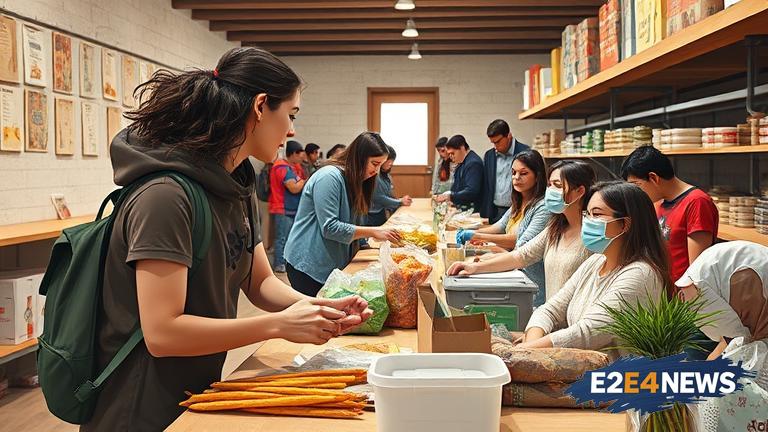Food insecurity is becoming an increasingly pressing issue among college students in New Mexico, with a significant rise in the number of students struggling to access nutritious food. This trend is not unique to New Mexico, as colleges and universities across the United States are grappling with the challenges of food insecurity on campus. Despite the growing awareness of the issue, many students are still forced to choose between paying for tuition, housing, and food, leading to a significant number of students experiencing food insecurity. The consequences of food insecurity can be far-reaching, affecting not only a student’s physical health but also their mental health and academic performance. Students who experience food insecurity are more likely to struggle with anxiety, depression, and other mental health issues, which can negatively impact their ability to succeed in college. Furthermore, food insecurity can also lead to a range of physical health problems, including malnutrition, diabetes, and heart disease. In New Mexico, the problem of food insecurity is particularly pronounced, with many students relying on food banks and other forms of assistance to get by. The state’s colleges and universities are working to address the issue, with many institutions implementing programs to provide food assistance to students in need. These programs include food pantries, meal vouchers, and other forms of support, which can help to alleviate the burden of food insecurity on students. However, more needs to be done to address the root causes of food insecurity, including poverty, lack of access to affordable housing, and limited job opportunities. To combat food insecurity, colleges and universities must work to create a supportive environment that allows students to thrive, both academically and personally. This can involve providing resources such as food assistance, mental health counseling, and academic support, as well as working to address the systemic issues that contribute to food insecurity. By taking a comprehensive approach to addressing food insecurity, New Mexico’s colleges and universities can help to ensure that all students have the opportunity to succeed, regardless of their background or financial situation. The issue of food insecurity is complex and multifaceted, requiring a sustained and coordinated effort to address. It is essential that colleges and universities, government agencies, and community organizations work together to provide support and resources to students in need. By doing so, we can help to create a more equitable and just society, where all individuals have access to the resources they need to thrive. The rise of food insecurity among college students in New Mexico is a pressing concern that requires immediate attention and action. It is crucial that we work to address the root causes of food insecurity, including poverty and lack of access to affordable housing, in order to create a more supportive environment for students. By providing resources and support, we can help to alleviate the burden of food insecurity on students and ensure that they have the opportunity to succeed. In addition to the efforts of colleges and universities, government agencies and community organizations must also play a role in addressing food insecurity. This can involve providing funding and resources to support food assistance programs, as well as working to address the systemic issues that contribute to food insecurity. By working together, we can help to create a more comprehensive and sustainable solution to the problem of food insecurity among college students in New Mexico. The consequences of inaction are severe, and it is essential that we take immediate action to address the issue of food insecurity. By doing so, we can help to ensure that all students have the opportunity to succeed, regardless of their background or financial situation. The issue of food insecurity is not just a moral imperative, but also an economic one, as it can have significant impacts on the state’s economy and workforce. By addressing food insecurity, we can help to create a more skilled and productive workforce, which is essential for the state’s economic growth and development. In conclusion, the rise of food insecurity among college students in New Mexico is a pressing concern that requires immediate attention and action. It is crucial that we work to address the root causes of food insecurity, including poverty and lack of access to affordable housing, in order to create a more supportive environment for students. By providing resources and support, we can help to alleviate the burden of food insecurity on students and ensure that they have the opportunity to succeed.





